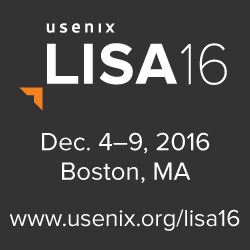Advanced Docker Concepts and Container Orchestration
Thurgood Marshall West
You have installed Docker, you know how to run containers, and have written Dockerfiles to build container images for your applications (or parts of your applications). Now comes the next part: connecting multiple containers together and deploying them on a cluster of Docker hosts instead of your single development machine.
This is what we will cover, along with some production-related questions: How to manage logs? Backups? Remote access? Security upgrades?
In this workshop, we will present the networking model of containers and cover how to run containerized applications spanning multiple Docker hosts. We will give recipes to implement cleanly various ops tasks including logging, backups, and more. Finally, we will discuss orchestration and scheduling. We will present solutions like Swarm and Mesos, and see some of them in action on an actual microservices architecture.
Developers and system administrators who are familiar with basic Docker concepts and want to learn how to deploy Docker for real-world applications.
You will know how to deploy Docker "for real," and how to perform common operational tasks with containers. You will learn about patterns and best practices to scale applications with Docker and containers.
- Pre-requirements
- VM environment
- Our sample application
- Running the whole app on a single node
- Finding bottlenecks
- Scaling workers on a single node
- Scaling HTTP on a single node
- Connecting to containers on other hosts
- Abstracting connection details
- Backups
- Logs
- Security upgrades
- Network traffic analysis
- Introducing Swarm
- Setting up our Swarm cluster
- Running on Swarm
- Network plumbing on Swarm
- Last words
You won't need to pre-install Docker before the course; each student will be given credentials to connect to an individual virtual machine. All you need is a computer with an SSH client.


connect with us